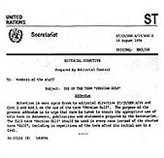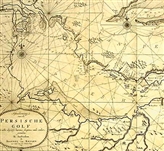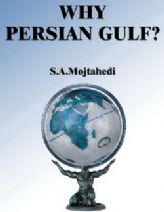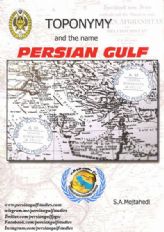What is Turkey’s role in Tripoli political tremor?
Date: 9/6/2020 12:25:32 PM
What is Turkey’s role in Tripoli political tremor?
The power struggle inside the Tripoli government is drawing Turkey into a political brouhaha with unpredictable consequences.
The arm wrestling in Libya’s Government of National Accord (GNA), which boiled over with Prime Minister Fayez al-Sarraj’s suspension of the powerful Interior Minister Fathi Bashagha, has brought into question Turkey’s role in the power struggle among its allies in Libya. Some believe the row is an unwelcome development for Turkey, while others see it as a sign that Ankara has opted to back Bashagha, its No. 1 man in Libya, against Sarraj.
The circumstances surrounding Bashagha’s suspension and other reshuffles last week gave rise to speculation that Sarraj pulled off a preemptive “coup” against a coup plot by Bashagha, who was in Ankara at the time of his removal. Yet Libyan sources believe that Turkey is unlikely to undermine a government with which it signed critical accords on maritime demarcation and military cooperation in November 2019.
The coup speculation stemmed from a series of developments that preceded the showdown in Tripoli.
On Aug. 21, Sarraj and Aguila Saleh, head of the House of Representatives — the political arm of the eastern forces fighting Tripoli — issued simultaneous cease-fire appeals. Some terms of the cease-fire initiative, shaped through German and US mediation, were not to Ankara’s liking. Above all, Ankara wanted that Khalifa Hifter’s eastern forces cede the control of the strategically significant Sirte and al-Jufra to the Tripoli government, but Sarraj and Saleh proposed a joint force to police the region. Also, they called for the pullout of all foreign forces and the disbanding of militia — a point that is of direct concern to Ankara, which has brought in thousands of fighters from Syria and is seeking permanent bases in Libya.
In another converging point, Sarraj and Saleh proposed that oil revenues be kept at the Libyan Foreign Bank, while Ankara favored the country’s central bank. Ankara has had an extraordinary relationship with Libya’s central bank since 2011, as evidenced by the cooperation accord that the latter signed with Turkey’s central bank Aug. 31 amid the political jitters in Tripoli.
Never miss another story
Despite a widespread conviction that Sarraj would not act independently from Ankara after all the military support he received from Turkey against Hifter, the announcement of cease-fire terms that irk Ankara raises questions.
Turkey was already annoyed by revelations in July that Sarraj had grudgingly signed the maritime deal with Ankara. According to officials in Tripoli, Sarraj resisted “relentless pressure” from Turkey for over a year because he felt that, as a transitional premier, he lacked the authority to sign international agreements and worried that the deal would face European rejection. Eventually, he acquiesced to the deal as Hifter threatened to seize Tripoli and Islamists inside his administration weighed in in favor of Ankara.
Besides, many in Tripoli have come to believe that too many concessions have been given to Turkey, while its military support has fallen short of securing control of all of Libya. Turkey's Syrian mercenaries are becoming another irritant.
Another move that irked Ankara after the cease-fire call was Sarraj’s acceptance of French President Emmanuel Macron’s invitation to visit Paris.
To top it all, street protests erupted against the Tripoli government.
A shortcut conclusion that some observers draw from all this is that Bashagha had an eye on Sarraj’s post and, trying to take advantage of the popular protests, jumped secretly on a private jet to enlist Ankara’s support. Sarraj, however, was bold enough to suspend Bashagha, which resonated as a move against Ankara.
A Libyan civil society leader, who requested anonymity, was rather cautious on conclusions about a Turkish role in the showdown. He said President Recep Tayyip Erdogan is indeed irked by some of Sarraj’s moves including his plans to visit France and asked the prime minister to change his advisers, but saw little Turkish influence in the power struggle in Tripoli.
“Bashagha is using the Turkish government to stay in power; Sarraj is doing the same. And because Sarraj has a greater authority, he removed Bashagha,” the source told Al-Monitor. “Sarraj cannot act independently from Turkey. Bashagha’s courting to France, Italy and Egypt in a bid to be a prime minister have irked the Turks and Americans.”
“The Muslim Brotherhood-led anti-Sarraj faction within the government exploited the protests to lobby for a new government under Bashagha’s leadership,” the source added, noting that Turkey was also annoyed by Bashagha’s alleged involvement in the French intellectual Bernard-Henry Levy’s visit to Libya, whom Ankara deems as an adversary.
Jalel Harchaoui, a researcher specializing in Libya at the Clingendael Institute in The Hague, noted that during Hifter’s 14-month offensive on Tripoli, Bashagha, who was already close to Ankara, was one of the key figures who worked well with Turkey, but that does not necessarily mean that Ankara has an incentive to undermine Sarraj unless it serves its own strategic interests.
“Independent of considerations about his competence as interior minister, Bashagha happens to be a brazenly ambitious politician. He wants more than just being interior minister. This has been interpreted by some Libyans as a desire to become prime minister,” Harchaoui told Al-Monitor.
The expert argued that Turkey would not want “to rock the boat too much right now” since “Sarraj is the only entity that signed the two agreements [in November], and that piece of paper has not yet been ratified by the parliament.” He cautioned that “too many changes could make Turkey's position more fragile” and that Ankara has a long way to go to achieve its goals in Libya. “Many have to do with the maritime accord. Being far from the finish line, [Ankara] is not in a rush to put all of its chips on one Libyan politician,” Harchaoui said.
Turkey prioritizes the stability of the government and the United States tends to think along similar lines, Harchaoui stressed. He added, “Several foreign states like the technocratic effectiveness of Bashagha, but that doesn't mean his aspirations must be fulfilled. What we may now hear from the Sarraj camp is, 'OK, now that the suspension episode has hurt you, hopefully you will go back to work and tone down your political ambition a few notches.' What will actually happen in practice is a separate question. Maybe all these forces and factions will find a new equilibrium, or maybe Bashagha and his rivals' personal ambitions will continue weakening the GNA.”
In any case, Sarraj needs Turkey’s support. And it was the Sarraj-led government that sealed critical accords with Turkey, no matter that Ankara’s Libya strategy has relied mainly on Misratans of Turkish descent and Muslim Brotherhood affiliates. Undermining Sarraj or siding with Bashagha could add new predicaments to Turkey’s Libya policy. By taking sides, Ankara would risk fueling rifts between the government’s Muslim Brotherhood and nationalist blocs as well as enmities between rival militia in Tripoli and between the Misrata and Tripoli forces, the only beneficiary of which would be Hifter and his backers.
The danger of taking sides in Libya’s internal rows was evident from how rogue militia rejoiced at Bashagha’s suspension. The militia have resisted also moves that enjoy international support such as the Aug. 17 Turkish-Qatari deal with Sarraj’s government on institution-building, including the integration of armed groups into a regular army. In such a volatile climate, imposing a certain figure or a clique on others would risk to undo the existing fragile unity.
Meanwhile, objections are growing more vocal against both Hifter and the Tripoli government as well as foreign interventions, as seen in the Ihya Libya movement’s appeal to the United Nations. Others pin hope on Saif al-Islam Gadhafi to restore the old regime, a trend that worsens the minefield facing Turkey’s Libya venture.










